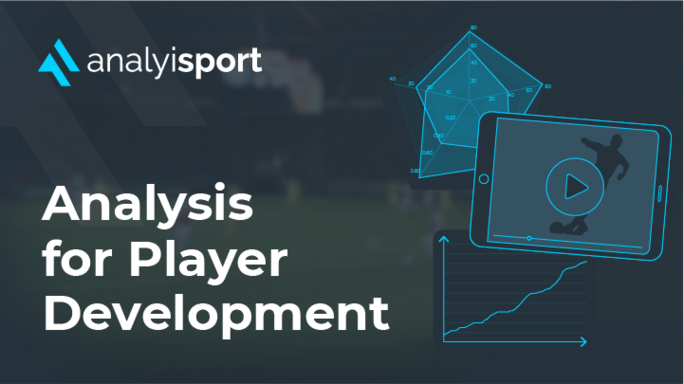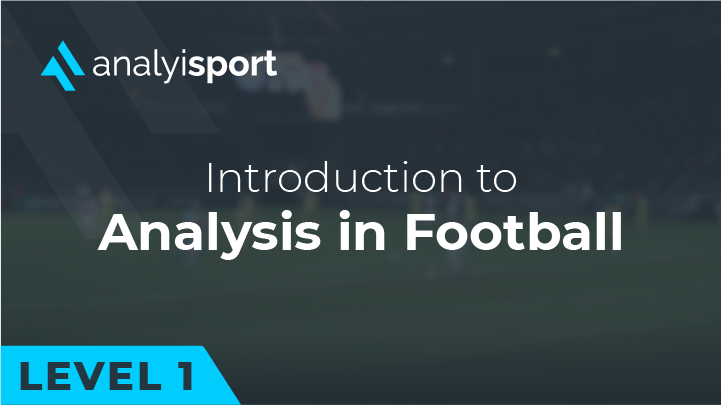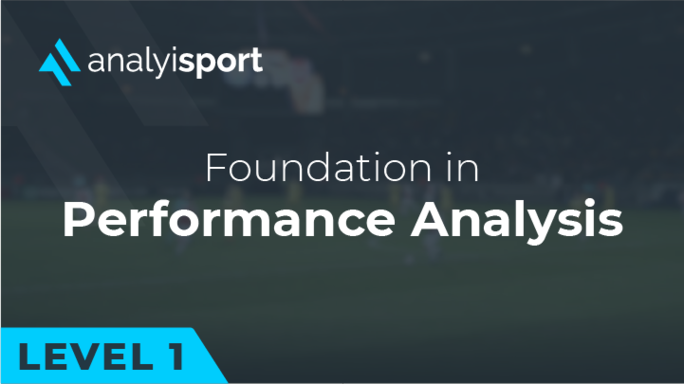How Can I Get a Job in Football Analytics?
Can I Get a Job in Football Analytics?
Getting a job in football as a data or video analyst is much more achievable than you might think. You don’t need to be an ex-player or have a contacts list chock-full of the names of top coaches. If you have the ability to look at the statistics and see why a player is underperforming or can watch video footage and explain how it shows the attacking strengths of a team, then you have the basic skills that clubs are looking for.
Football teams are increasingly recruiting analysts from outside the game. “I got a message from Stevie Grieve, the head of analysis at Dundee United,” recruitment analyst Ashwin Raman told Not The Old Firm. “He asked if I wanted to join the club on a part-time basis and I couldn’t believe it. Obviously I accepted, I was more than happy to join, I was 16,”
Raman had never worked in football before, but he didn’t get offered the job by accident. He had come to the Scottish club’s attention through the high quality of the football analysis work he was sharing online.
Working in football is a dream career for many people, so there is stiff competition for such jobs. But the sport has never been so open to new talent. If you think you’ve got what it takes, there’s plenty you can do to develop your skills and give yourself a chance of landing that opportunity.
Where to Learn About Football Analytics
To get a job in football analytics, you need a strong knowledge of the subject. One option is to a university degree in the subject. There are many different courses available which will offer you a thorough education in the subject, although they do take at least three years to complete and tuition fees are expensive. Many analysts don’t have one. Aswin Raman was still at school when he started working for Dundee Utd and had to find time to do his analysis work when he wasn’t completing his homework. Instead, he learned about the subject through books and blogs, starting with Soccernomics by Simon Kuper and Stefan Szymanski.
Although it’s possible to be self-taught, having qualifications not only helps you improve your knowledge, it also demonstrates to potential employers that you have the right skills. If you don’t want to do a degree in the subject, there are some brilliant online courses you can take on data and video analysis in football. These courses look great on your CV and have been created with the input of professional analysts who know how the analysis process works at top professional clubs.
As well as learning about how data and video are used in football, it’s a good idea to consider more general courses or tutorials in programming languages such as Python, R and SQL. Knowing how to use them isn’t as essential as having a good knowledge of football, but they can help you to get more out of the data and create your own visuals, allowing you to present your insights in ways that are attention-grabbing and easy to understand.
Why a Coaching Badge Can Help You as a Football Analyst
As well as studying how to use data and video, it can be a good idea to learn about coaching. During one of our webinars, we spoke to Birmingham City’s Danny Barham about whether he would describe himself as a coach or an analyst. He told us that he doesn’t want to label himself as one or the other, as having both skill sets means that he has more to offer clubs.
QPR’s Paul Golah, another of our webinar guests, has also worked as both a coach and an analyst. There’s now much more overlap between the two roles. Some clubs, such as Newcastle United, have coach-analysts who work with the first team doing both jobs.
Even if you don’t want a career as a coach, having a good knowledge of coaching will still help. A key part of an analyst’s work is being able to present their findings to other people at the club, whether they are coaches, players, or members of the recruitment team. Being able to use the same terminology as the coaching staff helps an analyst to get their ideas across more clearly.
How to Get Relevant Experience for a Football Analytics Job
Although football clubs are hiring analysts who have not previously worked in football, it can help to have some relevant experience to put on your CV.
Internships are a great starting point. Many professional analysts, even those working at top clubs, started their careers as interns. An internship gives you the chance to find out how analysis at a football club works in practice and allows you to learn from the experience of the analysts already in the department. Often, if it goes well, it leads to a full-time job at the same club.
If you can’t find an internship that suits you, try volunteering. Many smaller clubs, especially non-league ones, haven’t got large budgets to spend on analysis. If you get in touch with someone at your local club, they may be open to you doing some volunteer analysis work to support the coaching staff.
Even without a club, it’s possible to put together a portfolio of your own analysis work. You can find a lot of great football data for free on FBref and, if you can afford to, a subscription to Wyscout will give you access to the same data and video footage that professional clubs use. With all this information at your fingertips, it’s possible to put together detailed reports on the performances of players or teams, showcasing your ability to turn the numbers into actionable insights.
How to Make Connections with People in Football
Football is a team game both on and off the pitch. Building connections with other analysts and people working in the game will help you improve your own knowledge of the sport and find opportunities.
Attending matches, especially at a small club, can be a good way to get to know people. Start conversations with people who are coaching amateur or youth teams. Not only will it give you practice in talking about football with people who work in the sport, but you can also learn more about how they see the game and what they’d be looking for from an analyst.
Reaching out to other analysts online is also a great idea. There are many analysts on social media sites such as Twitter and LinkedIn who post about their work and are happy to discuss analysis with others. It’s a very supportive community and many analysts are keen to help anyone with a genuine interest in the subject.
Becoming part of this community is how many people first start to get noticed. “There has been a massive influx of people doing public work, be it on social media or writing blogs who have now been swallowed up by clubs,” Luton Town’s Jay Socik told The Guardian. “I’m one myself and I could reel off 10, 12 examples in the past 12 months.”
Posting your own work online helps you to get your name out so that people working in the game think of you when a position becomes available. A blog can act as a portfolio, showcasing your abilities. If you don’t want to start your own, or want to broaden your audience, there are many websites that publish analysis that you can contribute to.
Where to Find Football Analytics Jobs
When you’re ready to start applying for jobs, keep an eye out for opportunities on websites such as Jobs In Football, The Video Analyst, and Futbol Jobs. Most clubs have a job vacancies page on their own website too which you can check to see if they’re hiring.
It’s also a good idea to keep an eye out on social media. You can often find information about which clubs are hiring being shared on these platforms, including by the AnalyiSport LinkedIn and Twitter accounts.
When you’re applying for a job, read the requirements carefully. If you don’t yet have the skills required, take another look at the courses available and improve your knowledge. Football analytics is a developing field and it’s important to keep yourself up-to-date with the latest ideas and innovations. Be realistic too. For a first job, you’re more likely to get a position at a lower-league club. It’s rare for someone to start at the top.
Becoming an analyst will take time and effort, but if you’re prepared to work hard and learn as much as you can, it’s possible to build a career in the game. Clubs across the world, both big and small, are continuing to invest in analysis and expand their departments. There have never before been so many opportunities.
CREDIT LINE
MoiraM – stock.adobe.com
Related Courses:

AnalyiSport Gift Voucher
£25.00
Share this article
Our Learning Pathways
AnalyiSport is for everyone who is passionate about analysis in football. Where are you in your development journey?
Become a Football Scout
As more clubs than ever look to build data into their recruitment process, an understanding of recruitment analysis is your ticket to success in the game.
Related Articles
Our team provides news and insights from the cutting edge of football analysis.






